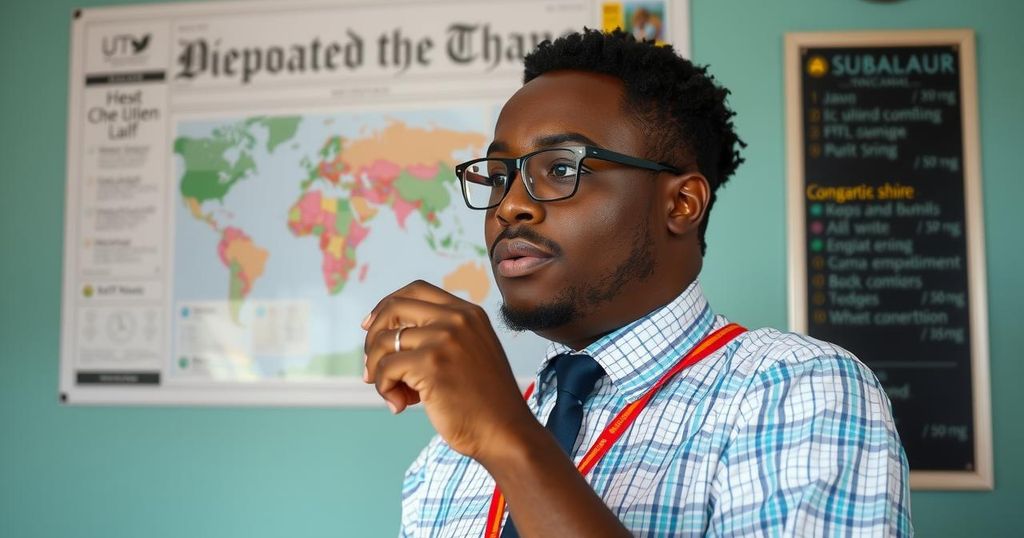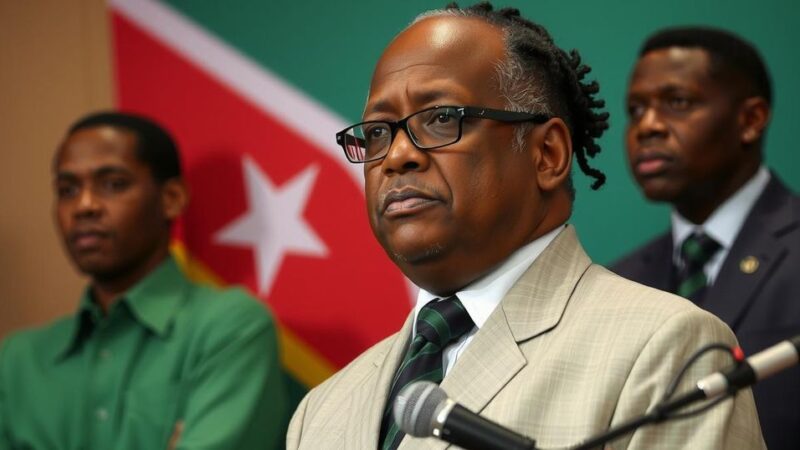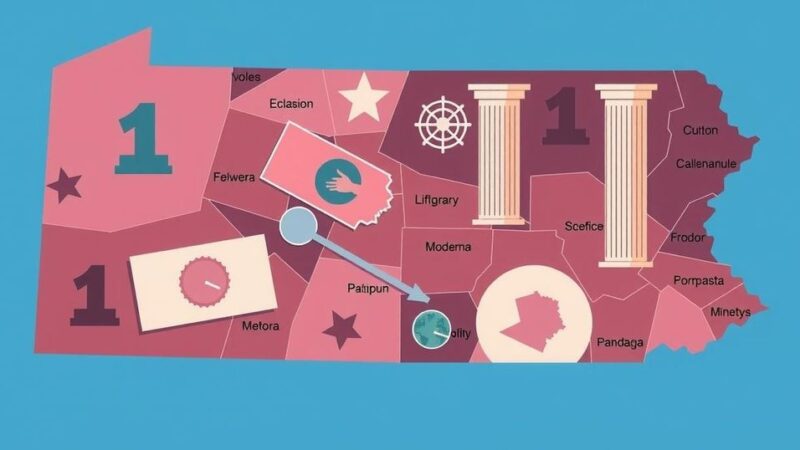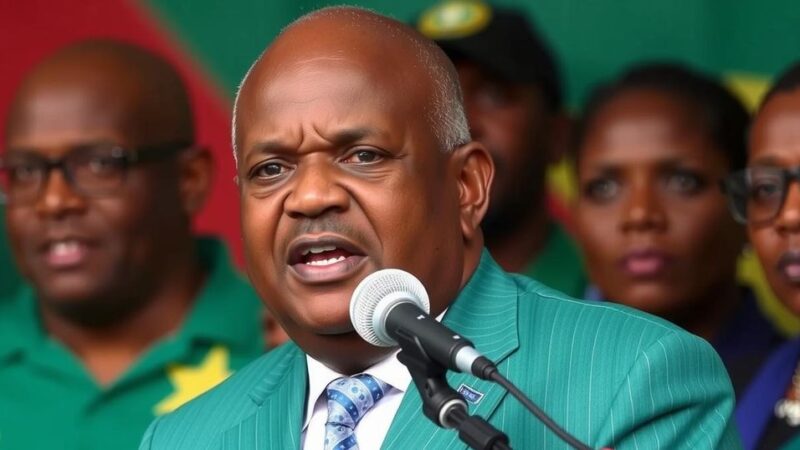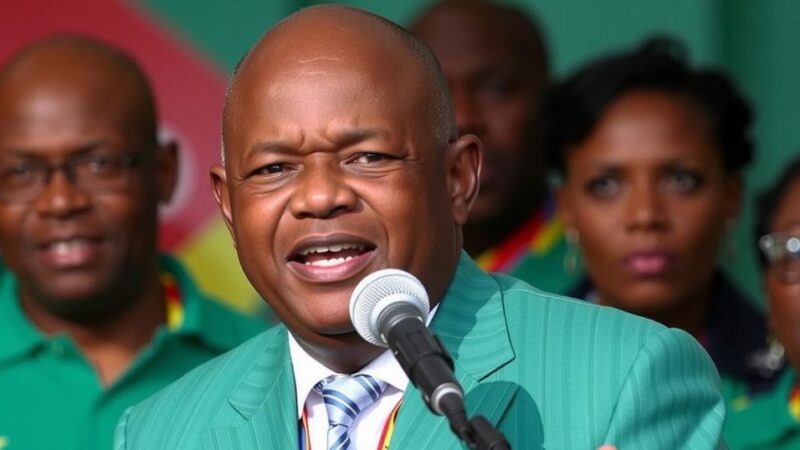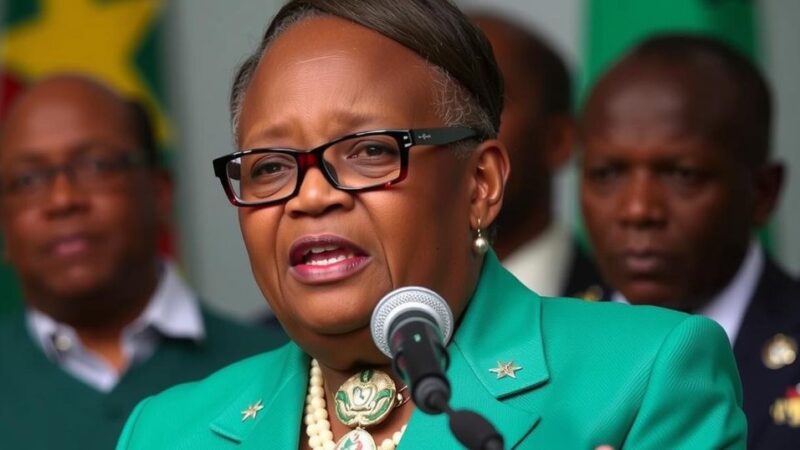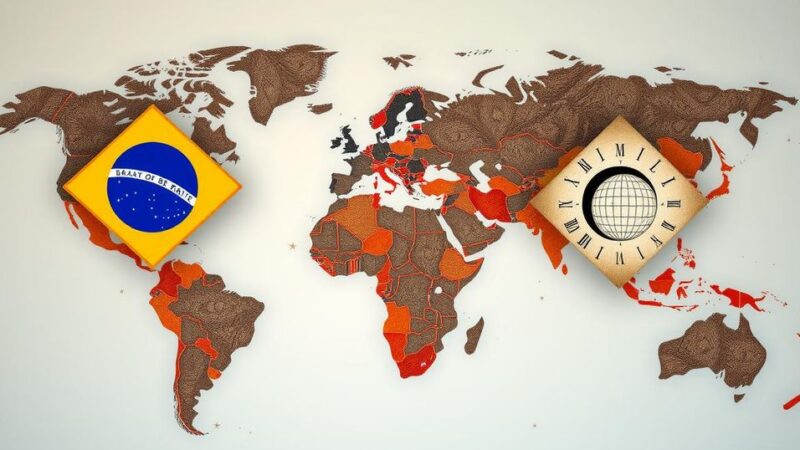As Ghana prepares for its 2024 elections, journalist John Kamara Taylor emphasizes the critical need for responsible media reporting to maintain peace. He draws from personal experiences in Liberia to advocate for journalists to avoid inciting violence and misinformation that harms societal stability. Additionally, calls for women’s increased role in politics underscore the broader importance of community collaboration during the elections.
As Ghana approaches its 2024 elections scheduled for December 7, the nation stands at a crossroads that could reaffirm its democratic stability or plunge it into chaos. Notably, Liberian journalist John Kamara Taylor has urged the media to exercise responsible reporting, ensuring that their platforms are not exploited to incite violence. Drawing from his experiences in Liberia, where war has lasting repercussions, he emphasized the media’s crucial role in maintaining peace during this pivotal period.
In a recent interview at Teshie, Mr. Taylor, who works as the Acting Managing Editor for Choice TV in Liberia, warned against the potential danger of inflammatory statements and misinformation that could jeopardize Ghana’s hard-earned stability. He stated that journalists should not allow their platforms to convey negative narratives and must be proactive in fostering a peaceful electoral environment. “War is too expensive, and the media should work hard to maintain the peace the country has,” he remarked.
Mr. Taylor highlighted the importance of cross-checking information rigorously to avoid any misreporting that could lead to unrest. He further advocated for collaborative efforts from all sectors of society to support a peaceful electoral process, particularly noting the historic aid Ghana provided to neighboring countries in turmoil.
Moreover, he underscored the unique challenges faced by women in conflict situations and urged female participation in the elections and broader political discourse. The call for responsible reporting is not just a professional obligation but a moral imperative to safeguard the well-being of families and communities.
Additionally, Dr. Aurelia Ayisi of the University of Ghana School of Communications stressed the delicate position of women during war, highlighting their dual responsibilities of nurturing and economic survival amidst instability. She urged the media to focus on issues affecting vulnerable populations and support women’s political involvement. Ultimately, both Mr. Taylor and Dr. Ayisi present a compelling case for the media’s responsibility in shaping narratives that foster peace and stability in Ghana during this crucial election season.
The upcoming 2024 elections in Ghana represent a significant moment for the country, which has maintained a stable democracy since 1992. As the population prepares to vote, concerns about maintaining peace and stability have emerged, especially given the historical contexts of conflict in the West African region. In this environment, media responsibility is of utmost importance, as journalists play a pivotal role in influencing public sentiment and electoral outcomes. The call for responsible journalism comes from various stakeholders, including seasoned journalists who have witnessed the negative impacts of war in their own countries.
In conclusion, as Ghana approaches a critical electoral juncture, the role of the media is crucial in preserving peace and stability. Journalists, as outlined by Mr. Taylor and Dr. Ayisi, have a profound responsibility to prioritize accurate, considerate reporting, especially concerning sensitive topics like elections. Furthermore, the emphasis on women’s involvement and the importance of community solidarity highlights the broader social implications of the media’s choices during this period. The lessons from neighboring countries enduring conflict serve as poignant reminders of the stakes involved.
Original Source: www.gbcghanaonline.com

